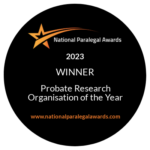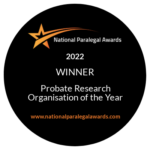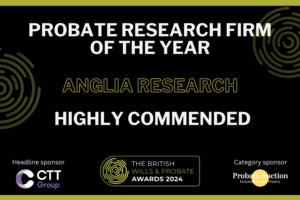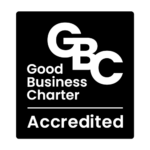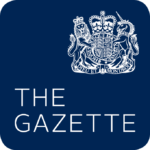We recognise the positive changes within the industry in recent years because of the excellent work of councils, procurement teams and dedicated teams within the public sector.
We are passionate about further supporting these changes, working with the public sector to continuously raise the bar so that all clients can receive exceptional levels of proficiency, accuracy and quality of service.
We encourage people to undertake due diligence. Please look into our work closely, as well any other firms, and make comparisons. More so – pop in and see us.
Peter Turvey
Why work with us?
- We are a reputable probate genealogy company with recognised credentials
- Governed by many policies and procedures that provide consistency in not only what we do but also the way we do it
- Regulated by the Institute of Paralegals and are a CILEX industry partner
- Regulated by the Financial Conduct Authority and supervised by HMRC for anti-money laundering purposes
- Fully compliant with EU Data Protection Regulation
- Good Business Charter accreditation in recognition of responsible business practices and an ESG policy that reflects our commitment to social and environmental sustainability
- Holder of the Suffolk Carbon Charter Bronze Award
- Members of the Empty Homes Network, ICCM and the BEST Foundation
- Passionate and proud of our commitment to ethical business methods, working to a strict code of conduct and a commitment to wellbeing
- Employ more accredited genealogists* and legally qualified staff than any other UK probate research company
All Anglia staff are either members of the Association of Genealogists or are trained to the same standards. The behind-the-scenes work is done with the utmost diligence; our staff never trust anything until they’ve forensically inspected it and satisfied themselves that it’s correct.
Peter Turvey
What we offer
- Professional, friendly and highly qualified staff who uphold the high standards required by the private and public sectors (including procurement) and next of kin
- Our staff hold over 280 years of combined probate research experience
- Free, fast and failsafe research for public bodies
- Transparency of our cost structure and no hidden fees to next of kin & private sector
- Complete estate administration service through our Wolsey Probate team, lead by a qualified solicitor, regulated with the SRA
Find out more about our services
Public sector services
Integrity comes first for us, and nowhere is this more important than when the private and public sectors meet.
LOCATING NEXT OF KIN
We offer a no-hassle, no-cost next of kin finding service.
Why choose Anglia Research?
Our accredited genealogists offer accessible, transparent, and confidential services that are regulated by the Professional Paralegal Register.
Code of conduct
At Anglia Research we have a commitment to integrity, quality and service. Our reputation is very important to us. Read more about our Code of Conduct here.
Find your case manager
Find out more about our case managers, researchers, or associates who have contacted you directly, or are dealing with your case, here.
2025 Anglia Research Services All Rights Reserved.
Anglia Research and Anglia Research Services are trading names of Anglia Research Services Limited, a company registered in England and Wales: no. 05405509
Marketing by Unity Online

